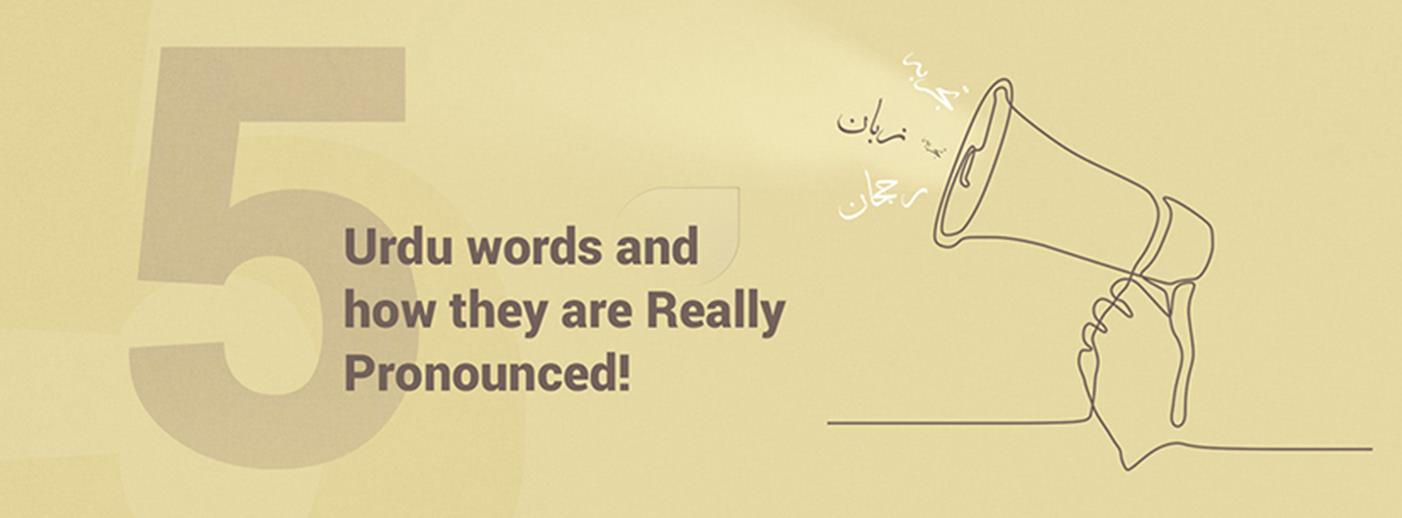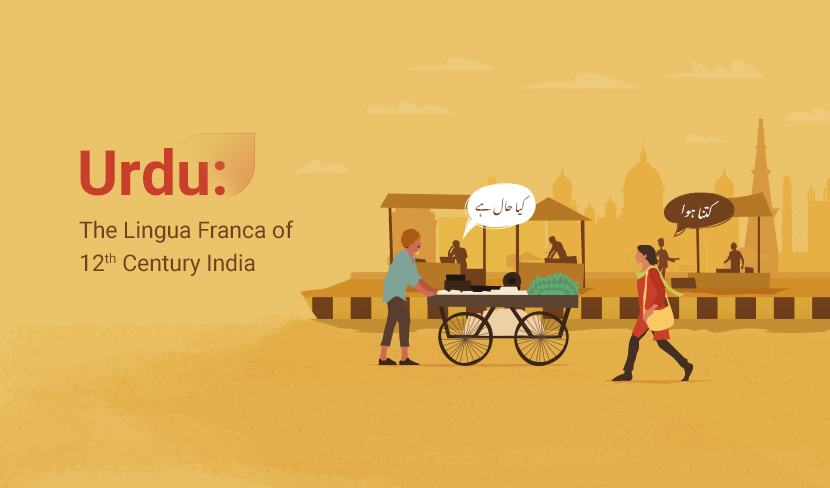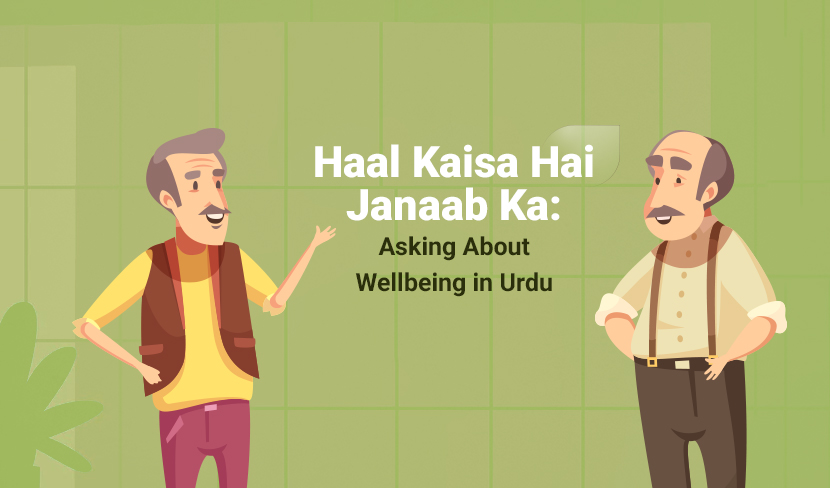Top searched
Saved words
khisyaanii billii khambaa noche
an embarrassed or ashamed person tends to vent his/her feeling by quarrelling
be-niyaaz
without want, free from want, wanting nothing, not in need, able to dispense, independent, carefree
5 Urdu words and how they are Really Pronounced!

A word’s actual utterance getting vulgarized in our everyday speech, is just Uber-common.
Let’s take the word pronunciation itself, how often do we hear it as Pro-noun-ci-ation?
Almost always! The little ‘nun’ nearly inevitably becomes ‘noun’. Why?
Maybe it’s easier that way; or, the word ‘Pronounce’ drives us to do so; or, that’s how we’ve heard it and have simply picked it up!
Mostly, it’s the third reason – hearing – that’s what pronunciation, or Talaffuz, as they say in Urdu, is all about.
For today let’s scour through 5 such commonplace words that we’ve been uttering else-ways!
1. Tajraba
Meaning experience, and sometimes experiment, this word is pronounced, almost off-the-cuff, as Ta-Jar-Baa, however, its actual pronunciation is ‘Taj-ra-Ba’.
Nowadays, even poets are getting it wrong, making their Ghazals out of meter. If you’re a budding poet and are trying to get along with prosody, you’ve got to know its uttered right. One little syllable here and there, and you’re off!
2. Ruj’haan
Ahh, this one’s really on the news anchors; ‘Chunaav ke Shuru’aati Rujhaanaat bataa rahe hain kih…’
The word means bent or inclination and unfortunately is inflected wrong. So, what’s wrong about it?
See the little apostrophe above, between J and H? Therein lies the error.
It’s an Arabic word with the root Raj’h, one which also gives us the word Tarjiih, or preference.
It is correctly spoken as ‘Ruj-Haan’, not ‘Ru-JHaan’. You see there is no ‘Jh’ (as in Jhankaar) in Arabic. The J and H are two different letters with their own distinct sounds.
A similar word is Mash’huur with SH and H having their own voice. Although, it too, is being mispronounced, we do sometimes hear the right utterance: ‘Mash-Huu-R’.
3. Su’aal
Another prototype error, however, no one can claim it!
This is our very own Sawaal, or question. Although it also means begging, it is rarely used in that sense anymore. Remember the Qawwali, ‘Shirdi wale Sai Baba, aaya hai tere dar pe Sawaalii’? Suaali there means beggar.
About the pronunciation, there is no ‘w’ sound in it, it has just tagged along since the script shows for it: سؤال
Earlier, people used to mark the vaav with a Hamza to show the little ‘u’ vowel sound. But soon that diacritic was dropped and Su’aal turned into Sawaal.
4. Pech-Kash
Yes, it’s Pech-Kash, not Pech-Kas!
How did we go astray on this one? Perhaps because of the Hindi verb Kasnaa or to tighten, for that’s what a screwdriver is supposed to do.
Pech means a twist or coil (screw), and the Kash comes from the Persian Kashidan meaning drawing, pulling, or carrying. Thus, Pech-Kash.
What a strange error it is, isn’t it? A Pech-Kash, literally screw-puller, becoming Pech-Kas, literally Screw-tightener.
The silver-lining with mispronunciations!
5. Zabaan
The bedrock of all languages, Zabaan or tongue, is often itself misspoken as Zubaan.
The ‘u’ vowel sound is actually quite a recent addition; perhaps brought forth by film songs, who knows?
Interestingly, the original word was Zafaan, and meant flame; that’s why we frequently come across the compound Zabaan-e-Sham’, or the tongue of the candle, in classical poetry. Because the flame looks like a tongue.
Gradually, the ‘F’ has changed into ‘B’, and now the vowels, too, are flickering “u-round”!
No apologies for the word punning.
Delete 44 saved words?
Do you really want to delete these records? This process cannot be undone





